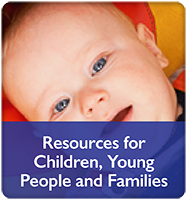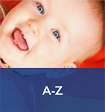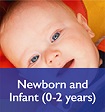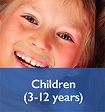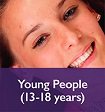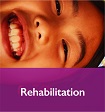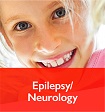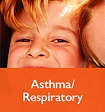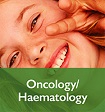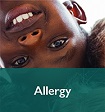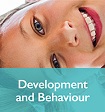Newborn and Infant (0-2 years)
Infancy is categorised by the forming of attachment bonds and trusting relationships between children and their families.
When babies are young common health problems include colds, coughs, fevers, vomiting, and minor skin problems (e.g. nappy rash). As infants enter toddlerhood (from 18 months) and are developing a sense of mastery and autonomy, new family issues can also emerge. These include dealing with the child’s fussy eating behaviours and setting limits on behaviours. Common health problems in infancy are not usually serious and can be managed by local general practitioners and child health nurses.
Some infants require more specialist care. Children who are born very small, very early, or very ill are at higher rick of having other health concerns. Babies and infants who have spent time after birth in an intensive care nursery may need follow-up in neonatal clinics.
Other complex health issues requiring specialise care can include:
- Heart defects
- Cleft lip/palate
- Genetic conditions such as Down Syndrome
- Spina Bifida
Who we care for
Most infants will get good health care from their local child health centre and/or their general practitioner (GP). GPs can refer to a paediatrician (all paediatricians have training in both child and adolescent health care).
Neonatal follow up and paediatric clinics are located at the Royal Hobart Hospital, Launceston General Hospital, North West Regional Hospital (Burnie) and Mersey Community Hospital (Latrobe).
What to expect at clinic
Referrals to specialist neonatal follow-up and paediatric clinics are triaged by a clinical nurse. Depending on their needs, children will then be booked into clinic where they will be assessed by a paediatrician or paediatric registrar. Waiting times can vary considerably.
It is recommended that before you go and see the paediatrician/paediatric registrar you consider doing the following:
- Write down the reason for the visit and any concerns your child/family has mentioned
- Make a list of all the questions you want to ask at the appointment
- If possible, write down a list of all medications and complementary therapies.
- If you have a baby, take their health record booklet, which includes information from their Maternal and Child Health checks.
The staff at the paediatric clinic will then work closely with your child’s general practitioner and allied health services to care for your child as they grow.
Your infant care team usually begins with
| The child (you) and family/caregivers | You and your caregivers are important members of your health care team, you look after yourself and your condition every day. You can tell us about your health and how your condition affects your everyday life. We will include you in decisions about your health. |
| General practitioner (GP) | Your GP takes care of your general health needs within the community. They often provide initial assessment and can refer to a paediatrician if more specialised care is required. Your GP can provide care in between more specialist appointments and assist with prescriptions and community care plans/action plans for your family or school. They will receive updates from other professionals. |
| Paediatric registrar | The paediatric registrar is a doctor training to become a specialist such as a paediatrician. Once they have met with you they report back to the paediatrician or relevant specialist. |
| Paediatrician | The paediatrician is a key member of your health care team, they provide specialist medical care and look at your health holistically. Your paediatrician often takes the lead in providing a diagnosis or organises referrals for tests or specialist input. They look after your holistic care needs and receive updates from other members of your health care team. |
| Specialist nurse/clinical coordinator | For infants with complex health problems, the specialist nurse is your main contact point. They will help you to organise your care and assist with communication between team members. You can talk to them if you have questions or concerns. Depending on your needs, the nurse may provide education and support, giving you the information you need to care for your condition. |
| Nurse practitioner | A nurse practitioner is a registered nurse with the experience, expertise and authority to diagnose and treat people of all ages with a variety of acute or chronic health conditions. Nurse practitioners have completed additional university study at Master’s degree level and are the most senior and independent clinical nurses in our health care system. |
Depending on individual needs the following health professionals may also provide care
| Lactation consultant | Lactation consultants are nursing professionals who help new mums to breastfeed. |
| Dietitian | The dietitian will assist in the assessment and management of your nutritional needs related to your condition. They will talk to you about your diet and make recommendations to support your health and growth. |
| Physiotherapist | Physiotherapists are experts in musculoskeletal assessment and treatment. They can help with motor skills (such as walking), joint problems, pain and fatigue. |
| Speech pathologist | Speech pathologists are experts in speaking, language and communication. They can also help with assessment and therapy around feeding and swallowing. |
| Occupational therapist (OT) | Occupational therapists help people to participate in activities they find meaningful and daily activities that they need to do. These activities include self-care (such as mealtimes or getting dressed), play, learning, school, work, leisure, hobbies and spending time with friends and family. Occupational therapists assess and assist with movement, thinking, sensory processing and equipment. |
| Social worker | Social workers can provide counselling and teach skills to help you cope with problems linked with your health, relationships or circumstances. They can help you understand your rights and help to advocate for you. |
| Neonatologist/Paediatric intensivist | Neonatologists and paediatric intensivists are specialist doctors with expert knowledge in the care and treatment of infants and children with complex conditions admitted to intensive care units (ICU) or special care nurseries. They may be involved in follow up appointments if required. |
How to access care for newborn and infants
A general practitioner referral is required for ongoing outpatient clinic reviews. Your GP can submit the referral by following the directions on the Department of Health, Tasmania's outpatient clinics website.
Other supports >>
| Child Health and Parenting Service (CHaPS) |
CHaPS work in partnership with families of children 0-5 years of age and aim to enhance the health and wellbeing of all young children in Tasmania. They provide child health and parenting information, support, assessment and advice. Services provided include completion of age-related growth and developmental
assessments from 2 weeks to 4 years of age and assistance with breastfeeding/feeding issues, nutrition, sleep and settling, post-natal depression and wellbeing, child-parent communication and behaviour management. Services are provided from many community locations.
You can contact CHaPS directly on 1300 064 544 24/7 parenting information and support is available through an associated service, The Parent Line on 1300 808 178 |
(Strong Families Safe Kids) | Some families may require increased support through a community organisation due to the complexity of their situation or other vulnerabilities. |
| St. Giles | St. Giles are a state-wide organisation that have a range of allied health professionals offering community-based therapy and other disability services. Services offered in each geographical area differ. |
| National Disability Insurance Scheme (NDIS) | Depending on your child’s needs, they may be eligible for NDIS funding for disability support and equipment. NDIS provides reasonable and necessary supports to people with lifelong functional impact from their disability. |
Contact us >>
| South | North | North West |
|---|---|---|
Royal Hobart Hospital Phone: (03) 6166 0000 | Launceston General Hospital Phone: (03) 6777 5247 | North West Regional Hospital Phone: (03) 6493 6300 Mersey Community Hospital Phone: (03) 6478 5219 |
Disclaimer: this website contains general health information and does not replace the advice of a health professional.


